“Take a look at this,” said Horatio Caine as he reads off the results of the mass spectrometer, “His American wife’s hands were clean but his Columbian wife had trace elements of triacetone triperoxide.” The crime scene investigator paused to let the information sink in. “TATP. This is our bomber.”
“I could do that!” the impressionable me thought when I watched many similar scenes from the ‘CSI’ TV series. A career in forensic science or perhaps something along the same line such as a medical laboratory technician; mostly behind-the-scenes job with investigative and scientific components, plus the bonus of a little interaction with the outside world. Hence, I enrolled in the Biomedical Science programme at the International Medical University (IMU) in July 2010 with the aim of materialising this vision.
The Biomedical Science programme at IMU offers a wide range of modules: from microbiology to medical jurisprudence, biochemistry to bioinformatics, and general chemistry to genetics, to name a few. Did I also mention that there was a forensic science module in there? The comprehensive set of modules was certainly useful in helping me to identify the areas of science that would be of most interest to me. Furthermore, majority of the modules were often accompanied by several laboratory sessions spread across the relevant semesters. These sessions provided insight into the practical aspects of the knowledge learned from lectures. In addition to laboratory and classroom sessions, we had problem-based learning sessions consisting of smaller number of students where we discussed specific topics in more detail and in an interactive manner under the guidance of a lecturer.

After the many interesting lectures, several grueling examinations, some fun extra-curricular activities, and invaluable friendships made in the first two-and-a-half years, it was time for us, the students, to venture into the real world for our internships.
My first placement was at Thomson Hospital (formerly known as Tropicana Medical Centre) and my second placement was at Cancer Research Malaysia (formerly known as Cancer Research Initiatives Foundation). The latter was where I subsequently spent four years as a research assistant investigating breast and ovarian cancers and bridging molecular biology (“wet-lab”) and bioinformatics (“dry-lab”) under the tutelage of Prof Teo Soo-Hwang and many bright members of the Breast Cancer Research Team. In parallel, and under the auspices of the company, I undertook the Masters in Medical Sciences programme at University Malaya under the co-supervision of consultant breast surgeon Prof Nur Aishah Mohd Taib.
“We last saw her during Easter. She looked healthy”, whispered my old acquaintance seated next to me during the funeral service, “The cancer was diagnosed shortly after. She passed away due to a hospital-acquired infection.” “What type of cancer?” I asked. “Lung cancer.” Paul Kalanithi, author of ‘When Breath Becomes Air’ came to mind.
“The results confirmed that there were no actionable mutations in the cancer. He’s now on chemotherapy. I just hope he lives long enough to…”, lamented my elderly friend over dinner. “What type of cancer?” I asked. “Pancreatic cancer. Stage four.” Steve Jobs came to mind.
Chances are we personally know someone afflicted with the big C. Cancer Research UK recently reported that 1 in 2 people in the UK will develop cancer some point in their lives – superseding previous forecasts that an estimated 1 in 3 people would develop cancer some point in their lives. Having worked close to half of a decade in a non-descript research laboratory situated in a suburban hospital, it is difficult not to be reminded daily that there is an urgency to further our understanding of cancer and to discover novel and improved treatments for the patients.
Unfortunately, the opportunity for me to go across the straits in August 2017 to further my understanding of this disease was hampered. Little did I know, at that time, new experiences were about to come in the ensuing year. I had the opportunity to work on new projects, combining large data analytics with cancer research, under the mentorship of Prof Leong Chee-Onn at IMU; attended interviews abroad during my application for graduate studies in Australia and United Kingdom under the generosity and benevolence of the research groups and universities; ventured into the world of data analytics outside of the academic setting at IQVIA; and above all, forged closer relationships, made few more, and spark a new one (hint: when she says no, try again three years later), and re-learn love, respect, and humility. In hindsight, I should have also learned how to cook and bake.

In the ensuing four years at the University of Oxford under the DPhil of Medical Sciences programme, I hope to continue contributing small pieces to the bigger puzzle. I will be working on single-cell genomic and transcriptomic analysis of blood-related cancers to further elucidate the pathogenesis of this disease. This is made possible by the auspices of the Clarendon Fund and Oxford-Radcliffe Scholarship in conjunction with WIMM (Weatherall Institute of Molecular Medicine) Prize PhD Studentship. But ultimately, this is made possible with my past mentors, colleagues, the many small coffee-or-tea (more accurately vada-or- sugar donuts) moments, much chivvying (thank you Dr. Lim Chooi Ling and Prof Peter Pook), and like many moments in science – serendipity.
It is not easy to sit back and do nothing knowing that something should be done to better understand cancer. I am not referring solely to intellectual contribution. Kindness, I believe, can and have and will save just as many lives as medicine. More importantly, kindness is often the precursor and motivation to medicine; lest we forget the afflicted are not just the cancer patients themselves, but also their caregivers and loved ones.
Written by: Sean Wei Xiong Wen, BM1/10





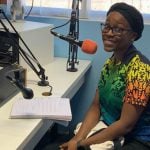
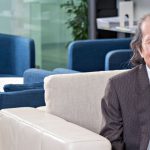
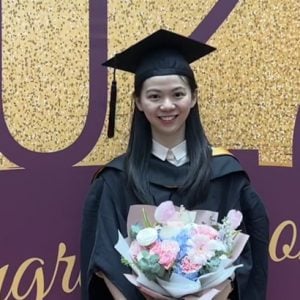
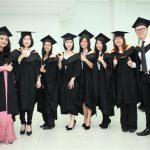
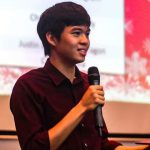
Lexitoto
Some truly excellent info , Gladiolus I noticed this.
Isototo
Your article is a great example of how small changes can lead to big results. Thank you for reminding us that every action counts.